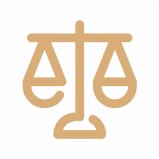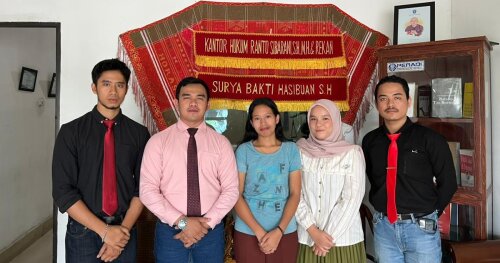Best Data Center & Digital Infrastructure Lawyers in Jakarta
Share your needs with us, get contacted by law firms.
Free. Takes 2 min.
List of the best lawyers in Jakarta, Indonesia
About Data Center & Digital Infrastructure Law in Jakarta, Indonesia
Data center and digital infrastructure law in Jakarta, Indonesia covers the rules, regulations, and best practices that govern the creation, management, security, and use of physical and virtual facilities where data is stored and managed. As Jakarta continues to grow as a commercial and technology hub in Southeast Asia, both local and international companies are increasing their investment in data centers and related digital infrastructure. Legal issues range from compliance with local regulations, data privacy requirements, facility licensing, connectivity agreements, and contractual arrangements with service providers, customers, or partners.
Why You May Need a Lawyer
Companies and individuals involved in the setup, operation, or use of data centers may encounter several legal challenges in Jakarta. Common situations where legal help is essential include:
- Negotiating and drafting contracts with data center operators, landlords, or service providers
- Ensuring compliance with data privacy and protection laws such as those regarding personal data processing
- Obtaining the necessary business permits, licenses, and certifications for operating data centers
- Handling disputes involving service level agreements, outages, or breaches of contract
- Navigating cross-border data transfer restrictions and local content requirements
- Understanding the tax implications of digital infrastructure investments
- Responding to government investigations or cybersecurity incidents
- Managing intellectual property concerns related to software and hardware infrastructure
- Resolving employment issues involving data center staff and contractors
- Advising on mergers, acquisitions, or joint ventures related to technology assets
Local Laws Overview
Indonesia has specific regulations affecting data centers and digital infrastructure in Jakarta. Key legal areas include:
- Personal Data Protection: The Personal Data Protection Law requires data controllers and processors to follow strict procedures regarding data collection, processing, and storage. Businesses that handle personal data of Indonesian citizens must comply with these rules, including data localization requirements for certain sectors.
- Electronic Information and Transactions (EIT) Law: This law governs electronic documents, contracts, and signatures as well as sets requirements for digital service providers, including data center operators.
- Data Localization: Certain types of data, especially in the banking, financial, and public sectors, must be stored locally within Indonesia. This significantly affects data center design and operation.
- Licensing and Regulatory Approvals: Operating a data center in Jakarta typically requires business licenses, building permits, environmental clearances, and may involve approvals from government bodies such as the Communications and Information Ministry (Kominfo).
- Cybersecurity: Companies must implement data security measures according to sector-specific regulations and report certain cyber incidents to authorities.
- Tax and Investment Regulations: Foreign ownership, investment structuring, and tax incentives for digital infrastructure are subject to the prevailing laws and government policies.
- Dispute Resolution: Most commercial disputes are resolved through the courts or arbitration, and proper contract drafting is critical for enforcement.
Frequently Asked Questions
What is considered a data center in Indonesian law?
A data center is a facility used to house computer systems and associated components, such as telecommunications and storage systems. Under Indonesian law, it refers to any location where data, especially electronic and personal data, is stored, managed, or processed.
Are there data localization requirements in Jakarta?
Yes, certain sectors are required to store and process specific categories of data within Indonesian territory. For example, organizations in finance and public services must keep citizen and transaction data within Indonesia.
Do I need a special license to operate a data center in Jakarta?
Yes, businesses operating data centers must obtain various licenses and permits, such as business licenses, building permits, and sometimes special approvals from relevant authorities based on the type of services offered.
How are data privacy and protection regulated?
Indonesia has enacted the Personal Data Protection Law, which places strict obligations on organizations to protect personal data, obtain explicit consent from data subjects, and report data breaches to the authorities.
What happens if my data center suffers a data breach?
In the case of a data breach, you must notify the relevant authorities and affected individuals promptly. Failure to do so can result in administrative and criminal penalties, including fines and potential suspension of operations.
Can foreign companies own and operate data centers in Jakarta?
Foreign ownership is possible, subject to investment restrictions and requirements under Indonesia's Negative Investment List and prevailing regulations. Legal advice is necessary to ensure compliance and structure the business appropriately.
What are the key tax considerations for data center businesses?
Tax obligations include corporate income tax, value-added tax, and potential incentives for certain investments. It is important to understand local tax rules, double taxation agreements, and any applicable exemptions.
Are service level agreements (SLAs) enforceable in Jakarta?
Yes, SLAs are legally binding as long as they conform to Indonesian contract law. It is important to draft clear, measurable terms and incorporate applicable dispute resolution clauses.
What are the penalties for non-compliance with data center regulations?
Penalties can include warnings, fines, temporary suspension, or revocation of business licenses. Criminal charges are possible for serious breaches, such as unlawful disclosure of personal data.
How can I transfer data internationally from a Jakarta data center?
International data transfers are allowed under certain conditions, such as implementing adequate safeguards and in compliance with Indonesian data protection regulations. Some sectors may have blanket prohibitions or strict supervisory requirements.
Additional Resources
If you need further legal information or assistance, the following organizations and government bodies are useful:
- Ministry of Communications and Information Technology (Kominfo): For licensing, regulatory guidelines, and policy updates
- Indonesia Investment Coordinating Board (BKPM): For foreign investment queries and guidance
- Indonesian Data Center Provider Association (IDPRO): For industry standards and best practices
- Indonesian Personal Data Protection Task Force: For data privacy regulations and compliance tips
- Jakarta One Stop Integrated Service Office (PTSP): For assistance with permits and local licenses
Next Steps
If you believe you require legal assistance regarding data center or digital infrastructure matters in Jakarta, consider the following steps:
- Gather and organize all related documents, such as business plans, contracts, permits, and correspondence
- Identify your main concerns or questions and outline your objectives
- Consult a lawyer or law firm specializing in data center, IT, and regulatory compliance in Jakarta
- Verify the lawyer's experience and credentials in handling data center or digital infrastructure cases
- Discuss your options, potential risks, and strategies for compliance or dispute resolution
- Stay updated with changes in Indonesian regulations by following relevant government websites and industry bodies
- Continue to review and improve your internal practices for data security, contract management, and compliance to minimize legal risks
Early legal consultation helps prevent costly mistakes and ensures your business operates within Jakarta's evolving legal landscape for data center and digital infrastructure services.
Lawzana helps you find the best lawyers and law firms in Jakarta through a curated and pre-screened list of qualified legal professionals. Our platform offers rankings and detailed profiles of attorneys and law firms, allowing you to compare based on practice areas, including Data Center & Digital Infrastructure, experience, and client feedback.
Each profile includes a description of the firm's areas of practice, client reviews, team members and partners, year of establishment, spoken languages, office locations, contact information, social media presence, and any published articles or resources. Most firms on our platform speak English and are experienced in both local and international legal matters.
Get a quote from top-rated law firms in Jakarta, Indonesia — quickly, securely, and without unnecessary hassle.
Disclaimer:
The information provided on this page is for general informational purposes only and does not constitute legal advice. While we strive to ensure the accuracy and relevance of the content, legal information may change over time, and interpretations of the law can vary. You should always consult with a qualified legal professional for advice specific to your situation.
We disclaim all liability for actions taken or not taken based on the content of this page. If you believe any information is incorrect or outdated, please contact us, and we will review and update it where appropriate.













